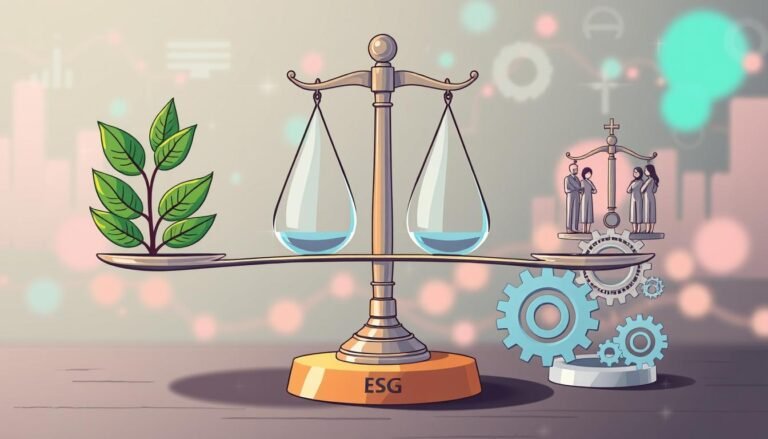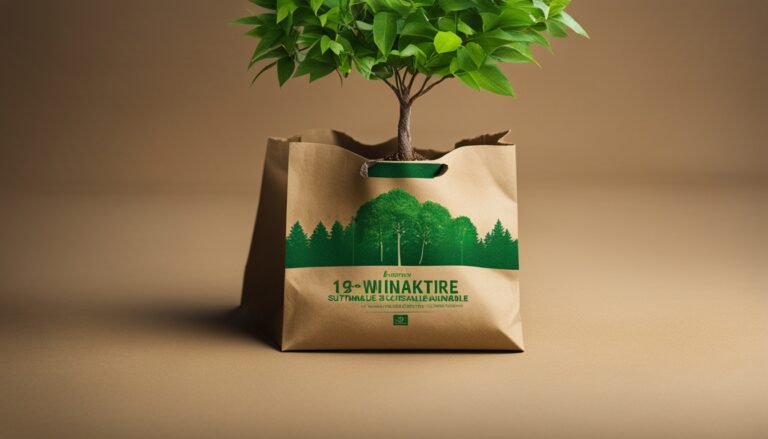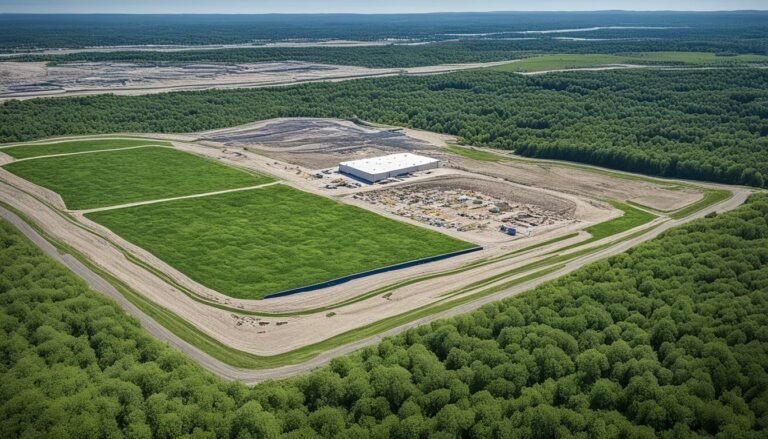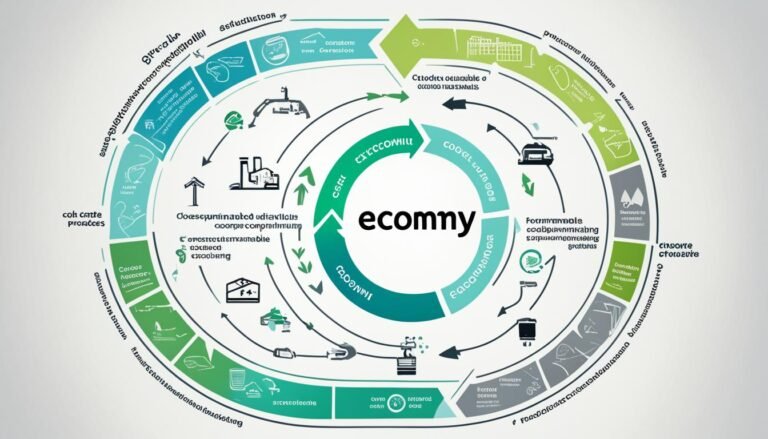Supply Chain Sustainability: Sourcing Responsibly and Minimizing Environmental Impact
“Supply Chain Sustainability” covers how companies pick materials from places that treat workers and the planet right. It’s really important nowadays for big global companies to look closely at their suppliers. This is to avoid trouble like financial loss, hurting people or nature, if their suppliers don’t meet these important standards.
Many big companies are working hard to make this better. They try to use good practices themselves and also talk to their suppliers about doing better. But, there’s still a lot to do to make the whole chain support people, the planet, and also make money. This is key for these companies to continue growing and protect the life of their business.
Key Takeaways
- MNCs are committing to responsible supply chain practices, emphasizing ethical procurement.
- Suppliers at lower levels of the chain pose financial and social risks by violating sustainability standards.
- Highlighted MNCs have implemented long-term sustainability goals within their supply networks.
- Over 85,000 businesses leverage Sedex to map and understand sustainable sourcing practices.
- Regulations like California’s Transparency in Supply Chains Act and the EU’s Conflict Minerals Regulation enforce disclosure and due diligence in supply chains.
The Importance of Supply Chain Sustainability
Supply chain sustainability is crucial for not hindering the needs of our future. It focuses on keeping sourcing practices safe for the environment and society while staying economically feasible. Key issues include harm to the environment, greenhouse gases, and the well-being of workers.
Understanding the Concept
Being sustainable in the supply chain means much more than being “green.” It includes taking care of the planet, being smart with money, and treating people fairly. These three parts work together to protect the earth, support companies, and ensure everyone is treated well. By going green, supply chains can better handle problems and keep going strong.
Benefits for Businesses and the Environment
Choosing sustainability is a smart business move, not just a kind one. It helps businesses by improving how they’re seen and by making operations more stable. By working sustainably, companies can save money, work better, and find new chances to grow. They also help the planet and take care of people. For example, Nike used sustainability to lower costs, use less material, and make more profit.
Looking ahead, the focus on circular ways of doing business is great news for supply chains. This shift is good for business and helps the planet. Working together in the supply chain not only saves money but also makes everyone more productive and green.
Responsible Procurement Practices
Running a company with ethical standards starts with choosing suppliers wisely. It’s about setting standards for them to keep. This helps ensure that the products you sell are made in ways that are good for people and the planet. It’s a path to following fair labor rules and saving the Earth, all while keeping the chain of supplies steady.
Establishing Sustainability Criteria
When you pick your suppliers, you should be looking we can trust and who share your company’s beliefs. This includes caring about fairness, making good business sense, and protecting nature. McKinsey tells us firms with great ethics could cut their costs a bit, 5 to 10 percent. They do this by working better and wasting less. Choosing these good-for-the-world suppliers can actually be a plus for your business too.
The Role of Supplier Audits
Checking up on your suppliers is key in making sure they’re really as good as they say they are. By doing careful checks, you can make sure they’re playing fair. These checks show where they can be better. This lets you help them improve. For instance, Fazer is big on making sure the farmers they get cacao from are treated well. They work on against poverty and follow strong rules for their suppliers.
Thinking about the big picture benefits, there’s a lot to gain. Your business could save money, stick by the rules better, and be more liked by people. Also, by buying things the right way, you help the planet and the folks who make your goods. This means less trash, cleaner air, and happier workers.
Ethical Sourcing in Supply Chains
Ethical sourcing is key in Corporate Social Responsibility. It pushes companies to be open and fair. They should make sure suppliers follow good labor rules. This means no child or forced labor and supporting equal rights and safe work environments.
Different countries have laws supporting these efforts. For example, the UK Modern Slavery Act from 2015 asks big firms to share yearly reports on their anti-slavery steps. The California Transparency in Supply Chains Act makes big makers tell the public how they fight human slavery. These acts help with Ethical Supply Chain Management.
Technology helps a lot here. AI and machine learning can spot changes in suppliers’ behavior. This helps keep up with ethical guidelines. Blockchain improves the view along the supply line. These tools are vital for looking into suppliers past the first tier. Many consumers are now focusing on buying from sustainable companies.
A survey found that 93% of shoppers today care a lot about social and environmental issues. They want brands to act responsibly. This has led to a big increase in Fairtrade products worldwide. Even when problems are found, it’s better to work with these suppliers to improve. Cutting ties is not always the best solution.
Using these ethical methods not only pleases shoppers but also helps business. Research shows costs in the supply chain can drop 9% to 16% with ethical sourcing. It can also grow profits by 20%. Companies that do this see an increase in brand value. This way, they stay ahead in a market that values ethics.
Green Logistics and Its Impact on Supply Chains
Green logistics is key to making supply chains more earth-friendly. Transportation makes up a big part of emissions, about 25%. That’s why using green ways to move goods is critical. It helps reduce harm to our planet.
Reducing Carbon Footprints
Green logistics aims to cut carbon emissions. The industry produces a huge amount of carbon dioxide, 1.2 billion metric tons every year. By making delivery routes smarter and using better management tools, companies can cut these numbers. They also save money. Teaming up with local government and transport providers helps push for greener ways to move stuff. This includes using electric vehicles and new, greener fuels.
Efficient Transportation Methods
Using smart transportation methods is crucial for eco-logistics. Technologies like advanced route planning and using bikes in cities can really make a difference. They cut down on pollution and costs. Automated routes can make operations smoother and more sustainable. This boosts how well a business can go green. By showing everyone the positives, like lower costs and less pollution, companies can encourage the use of these methods. This makes change easier for everyone involved.
Innovative Sustainable Packaging Solutions
The demand for green, Earth-friendly products includes their packaging now. People want packaging that’s friendly to the planet. They prefer wrappers that can be recycled, break down naturally, or come from renewable sources.
Choosing green materials and new packaging designs can make a big difference. It helps companies significantly reduce harm to the environment. Plus, products stand out in the market because they’re seen as responsible by those who care about the Earth.
Eco-Friendly Materials
Businesses are finding it vital to use eco materials in their packaging. New materials like:
- Mushroom Packaging: Acts as a good shield for products and is earth-friendly because it breaks down naturally.
- Algae-based Packaging: The market for algae products is growing fast. These materials are liked for being able to break down and feeling like regular plastic.
- Agricultural Byproduct Packaging: Turn farming waste into packaging. This helps make products that go back to the Earth safely.
Recyclable and Biodegradable Options
Making packaging from materials like Polypropylene or Sugar Cane makes it easier to recycle. This is important to stop adding non-biodegradable plastic to landfills every year.
- Compostable Packaging: Foods safe for compostable wraps turns into good soil.
- Refillable Spray Bottles: Lessens harm to the Earth by using less plastic over time. They also make for less waste.
- Embedded Tree Seeds: Pangea Organics made a solution that grows into trees. Their packaging has tree seeds, so it turns into green.
The movement towards Earth-loving packaging is strong. About 75% of companies are now on board. They’re all about making their wrapping easier to recycle and use less. Shoppers like this too, as it encourages them to buy from these companies again.
As more companies join in, the demand for green packaging materials goes up. This shifts things towards more affordable and Earth-benefiting packaging for all.
Building Resilience Through Environmental Compliance
Being true to Environmental Regulations is key in creating a strong supply chain. Over ten years, businesses might lose up to 45% of their annual profit due to supply chain troubles. These issues lead to a strain on waste systems, more emissions, and dangerous spills. Following green practices and sticking to compliance helps companies handle risks. It also keeps their good name and lets them stay nimble as laws change.
Partnerships like the one between Coca-Cola Africa and BanQu help a lot. They make sure recycling works well and that rules like EPR are met. It’s important to pick the right partner who can track things well for a strong and green supply chain. For this, choosing a partner with global knowledge and support is crucial. They should be able to verify where products come from, right down to the land they were made on.
The top traceability systems also let companies check their green and ethical marks easily. They provide ESG reports so businesses can keep up with their compliance and sustainability levels quickly. This makes managing compliance simpler and more effective.
Environmental compliance is more than just obeying laws like the UK’s Modern Slavery Act and California’s Transparency Act. It’s about fully weaving green habits into business operations to stop major issues. If a supply chain fails, it can cause pollution, more emissions, and dangerous leaks. Strictly following environmental rules helps companies avoid these big risks.
Choosing to be strong in environmental compliance means a company can last and keep growing. Focusing on green ways doesn’t just mean following laws. It builds a way of working that can deal with future bumps. Using tech like IoT and RFID supports this by improving how inventory is checked. This boosts both following policies and how well things run.
Regularly looking for risks, changing how you work, and caring about green choices helps a business beat bumps in the road. It’s smart for companies to invest in tools that predict the future well. This includes models that show what might happen under different conditions. By doing this, they set up a supply chain that is strong and ready to deal with whatever comes its way.
Embracing the Circular Economy in Supply Chains
Supply chains are moving towards a circular economy. This means a change from the old straight line way to a new, more green, and reusable path. Companies are now focusing on using resources more efficiently. They are creating systems that don’t waste as much and encourage reusing and recycling.
Principles of Circular Economy
Circular systems follow three main principles:
- Design out waste and pollution: Products that are made to be eco-friendly and don’t harm the planet as much.
- Circulate products and materials: Keeping things being used for as long as possible by fixing, reusing, or recycling them.
- Regenerate nature: Help nature by supporting environmental projects and building a better way of producing goods.
Following these principles has great benefits. For one, it lowers waste disposal costs. It also is a great way to encourage new ideas and ways of doing things. Over time, this approach helps companies use resources smarter and take care of the planet better.
Examples of Circular Economy Practices
Many companies are already doing well with circular economy ideas. For example:
- Walmart’s Energy Reduction Program: Walmart worked with its Chinese suppliers to use less energy. This saved a lot of energy, showing how being smart with resources can pay off.
- The European Green Deal: The EU is aiming to not hurt the climate by 2050. They are doing this by using fewer resources in big industries. This shows a big step towards being circular.
- Deloitte Initiatives: Big companies like Deloitte are helping make circular systems. This is important for creating a greener future after 2050.
Choosing to follow circular economy ideas is not just good for the planet. It also fits with what consumers care about. More and more, people want to buy from companies that look after the Earth. Plus, these companies can do better financially by saving on costs and attracting customers who care.
Managing Waste Effectively in Supply Chains
In today’s world, it’s key to manage waste well in supply chains. It’s important for the planet and for running businesses smoothly. By using strategies to minimize waste and focusing on sustainability, we can reduce our impact on the environment.
According to McKinsey, many companies see better results when they use technology for logistics. For example, iGPS plastic pallets are a smart choice. They last longer than wood pallets and can be fully recycled. This leads to less waste in the supply chain.
Good waste management saves companies money. It cuts down on the need for new materials and less packaging. Choosing options like iGPS Logistics can greatly cut waste. This helps the environment by using less energy and reducing pollution.
Choosing to waste less also makes operations run smoother. It makes customers happier and boosts a company’s place in the market. The Ellen MacArthur Foundation says waste in supply chains costs a lot each year. Finding better ways to pack items can help cut down on this waste.
Companies worldwide are working towards a circular economy. This means using products and materials longer to avoid waste. Walmart and Amazon are good examples. Walmart uses tracking technology like RFID to know where products are at all times. Amazon uses data to guess what people will buy. Both of these methods help lower waste. Coca-Cola also uses sensors to keep an eye on products and stop them from going bad.
The U.S. can do better when it comes to recycling. Currently, we only recycle about 35% of our waste. A lot of the trash we throw away is packaging. This shows the need to find ways to pack things that are better for the planet.
Managing waste well can cut costs for businesses. It also helps avoid fines for not handling waste properly. Many companies are making sustainability a top priority. This means they are working hard to waste less and be more green.
The Role of Fair Trade Practices
Fair Trade Practices are big in helping small farmers in poorer nations. They make sure these farmers get paid fairly and work in safe places. Through Ethical Consumerism, people want products that are sourced right.
In 2016-2017, cocoa prices dropping 40% showed how hard farmers’ lives are, especially in Côte d’Ivoire.
Benefits for Communities
Fair Trade makes life better for whole communities. In Ivory Coast, cocoa farmers earn very little, far less than what they need to live well.
The West Africa Cocoa Programme is helping with this. It provided training to over 34,000 people in 2019. They learn about managing money, leading, and stopping child labor. These skills help communities stand strong and grow.
Fair Trade Certifications
Fair Trade Labels help you choose products that are made ethically. This includes things like cocoa and vanilla. Efforts are being made to figure out fair wage standards for farmers in places like Côte d’Ivoire and Ghana.
Even though the number of traders following the rules dropped, work continues to keep Fair Trade strong. These labels also support global goals like Clean Water and Decent Work. So, shopping wisely can make a big difference.
Source Links
- A More Sustainable Supply Chain
- Sustainable supply chain: what is it and why is it important?
- AT&T – Sustainability Reporting – Responsible Supply Chain
- Supply Chain Sustainability | GEP
- Why Sustainability Matters in a Supply Chain
- The Importance of Sustainability in Supply Chains by Insync Supply Chain Management Pty Ltd
- What is sustainable procurement and why is it important?
- Sustainable Procurement – Definition, Examples, Benefits & Best Practices
- Sustainable Procurement | Business & Financial Services
- Ethically sourced products: What does it mean and how to tell?
- Building Ethical Supply Chains
- Council Post: The Economic Benefits And Best Practices Of Ethical Sourcing
- Sustainability and green logistics: reshaping the supply chain
- Green Logistics: Leading Sustainable Supply Chain Practices
- Green Logistics: Strategies for Eco-Friendly Delivery – Bringg
- 10 Innovative Sustainable Packaging Solutions
- 12 Innovative Sustainable Packaging Solutions You Should Know About
- Council Post: Packaging And Supply: Inspiration For More Sustainable Innovations
- The Supply Chain Resilience & Compliance Sustainability Guide
- Supply Chain Resilience: EHS Strategies for a Sustainable and Secure Future
- Modernizing Supply Chains for Resilience and Sustainability
- Embracing the Circular Economy: A Paradigm Shift in Supply Chain Sustainability
- Creating a Circular Economy: Solutions for a Sustainable Supply Chain | Ivalua
- Supply Chain and The Circular Economy
- Waste Management in the Supply Chain – iGPS
- 6 Unpredictable Ways of Reducing Waste Through Supply Chain Management
- Optimizing Waste Supply Chain Management For Sustainability
- Building supply chain collaboration to strive towards living incomes
- Power in Supply Chains – fairtrade-advocacy.org
- How Fair Trade Makes the Supply Chain Safer








